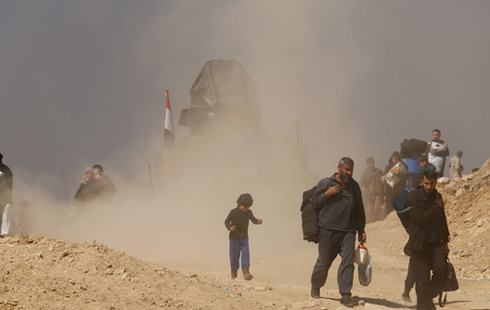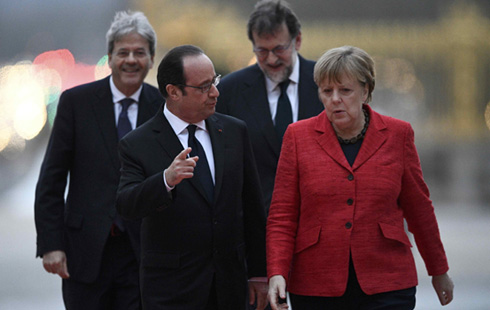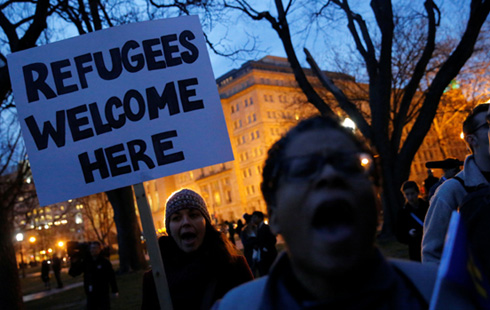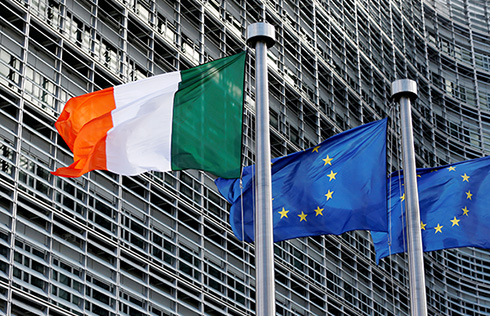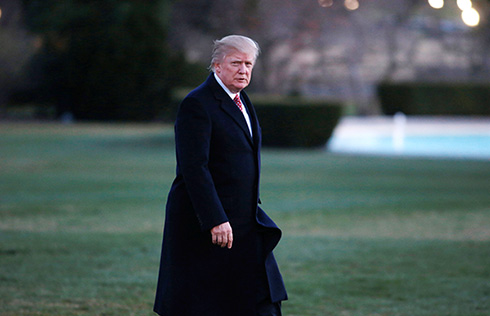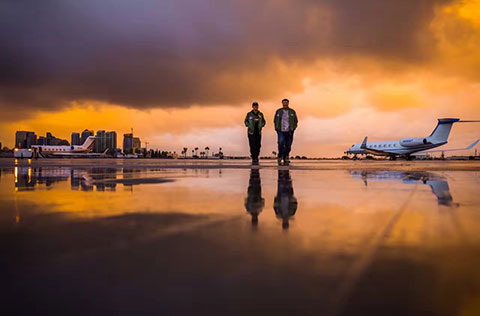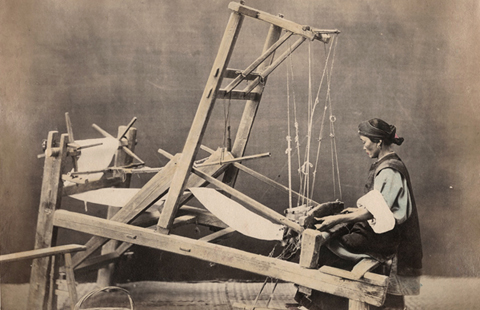Britain stages grand funeral for Thatcher
"I VOW TO THEE MY COUNTRY"
More than 2,300 mourners will attend including 11 serving prime ministers from around the world, the British government's entire cabinet, two heads of state and 17 foreign ministers.
But there will be notable absences. Former Soviet leader Mikhail Gorbachev and Nancy Reagan, the widow of Thatcher's great U.S. ally Ronald Reagan, are too frail to attend.
Thatcher struck up a close relationship with Reagan during the Cold War and was among the first to decide that Gorbachev was a man she could "do business with".
The guest list for her funeral has prompted talk of diplomatic snubs. A spokesman for Cameron denied the United States had snubbed Britain by not sending anyone senior from the administration of President Barack Obama.
The Argentine ambassador refused to attend after Britain said it wouldn't be inviting Argentine President Cristina Fernandez, following a request from the Thatcher family, amid increased tensions over the contested Falkland Islands.
Relations between the two countries remain strained after a 1982 war over the South Atlantic islands which Thatcher ordered a task force to retake after Argentine troops seized it.
Mourners at the funeral will hear her favourite hymns including the well-known early 20th century celebration of British patriotism "I vow to thee my country".
St Paul's, the 300-year-old cathedral where her funeral will take place, played host to the funerals of Nelson, the Duke of Wellington and Churchill as well as to the wedding of Prince Charles and Lady Diana Spencer.
The abiding domestic images of her premiership will remain those of conflict: huge police confrontations with mass ranks of coalminers whose year-long strike failed to save their pits and communities; Thatcher riding a tank in a white headscarf; and flames rising above Trafalgar Square in the riots over the deeply unpopular "poll tax" which contributed to her downfall.
But Cameron said that Thatcher's battles, particularly her crushing of trade unions that dramatically reduced the number of days lost to strikes, had in fact reduced divisions.
"She was a bold politician who recognised the consensus was failing ... She took tough and necessary decisions and in many ways created a new consensus ... So in the end the breaking of the mould ... led to less division, less strife," he said.
Even Thatcher's critics concede that - for better or for ill - she transformed the face of Britain.
In 1979, when she came to power, Britain was in the grip of a long post-war decline with notoriously troubled labour relations, low productivity and was being outperformed by continental rivals France and Germany.
Data show she turned that around by boosting home ownership and the service industry, breaking the power of the unions, and deregulating financial services.
But the price - growing inequality and the closure of large swathes of the country's industrial base - left parts of the country struggling to create new jobs and rebuild decimated communities, leaving a bitter taste which endures.
|
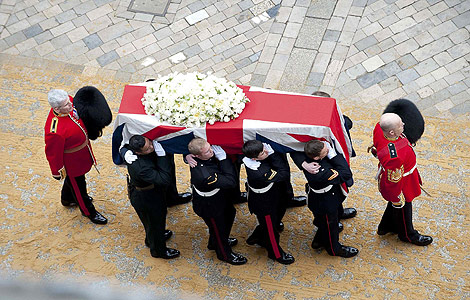 |
|
Military personnel carry the coffin of former British prime minister Margaret Thatcher outside St Paul's Cathedral, for her funeral service, in London April 17, 2013. [Photo/Agencies] |
|
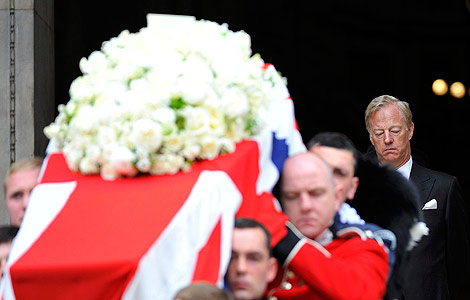 |
|
Mark Thatcher (R), the son of former British prime minister Margaret Thatcher, walks behind the coffin of his mother as it leaves St Paul's Cathedral, in London April 17, 2013. [Photo/Agencies] |
- Britain stages grand funeral for Margaret Thatcher
- Funeral service to be held for Thatcher
- Chinese ambassador to attend Thatcher's funeral
- Rehearsal for Margaret Thatcher's funeral
- Thatcher death 'party' in London draws hundreds
- Ding dong milk-snatching witch is dead
- Invitations sent out for Thatcher's funeral
- Thatcher 'may have been last of her kind'
- More than 2,000 people invited to Thatcher funeral
- Xi extends condolences for Thatcher's death
- Global tributes for Thatcher
- Thatcher's funeral to be on April 17
- China conveys condolences for Thatcher's death
- Margaret Thatcher 1925-2013







